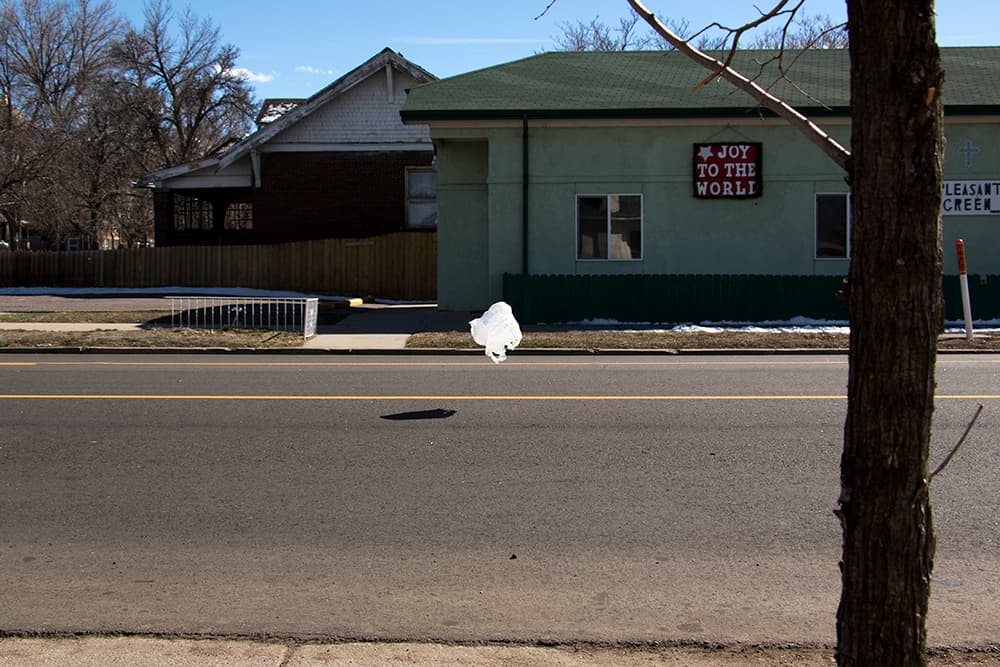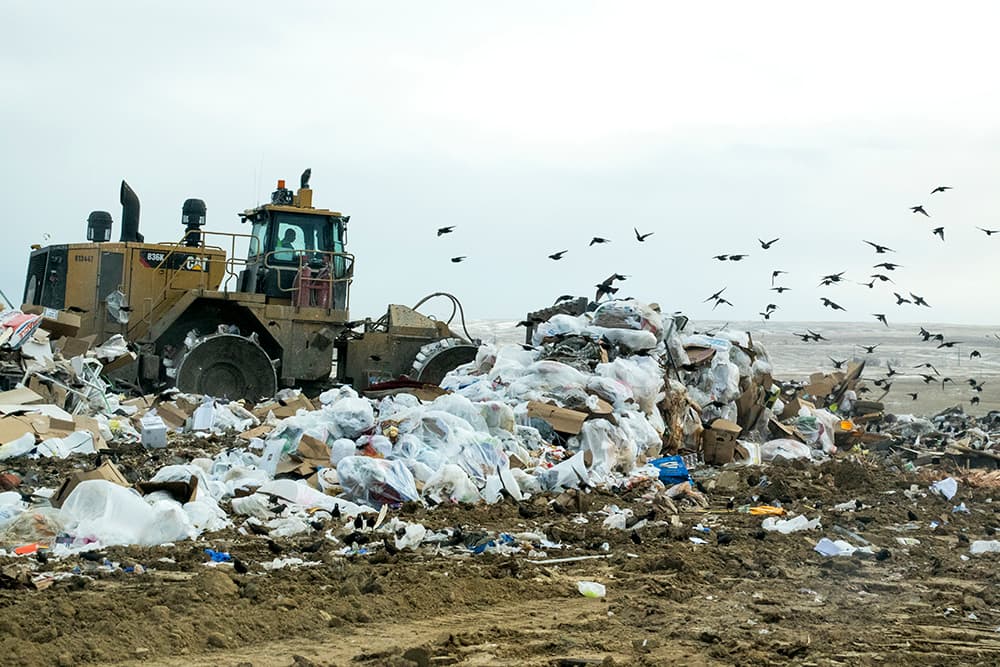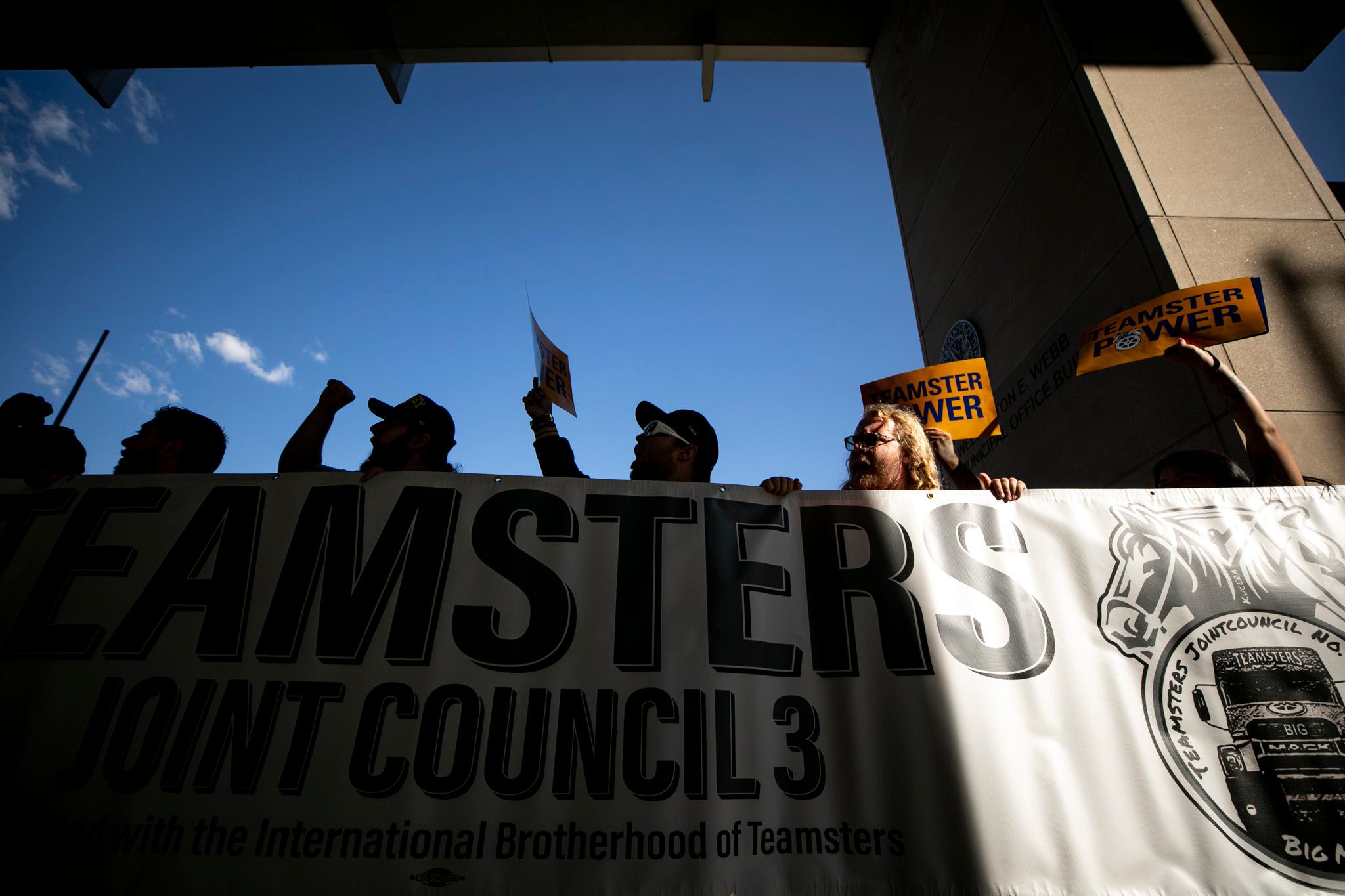Update: Denver City Councilwoman Kendra Black said she will introduce a bill, but nothing has been filed yet. The details are to be determined, she told Denverite.
Denver City Council President Jolon Clark and some of his colleagues are looking into banning plastic bags in the city. Straws and plastic utensils could get blacklisted, too.
No one has proposed a law yet. The Denver City Council discussed the possibility at a meeting of the newly formed Policy Committee on Wednesday.
A council bill would probably move forward only if the Colorado General Assembly repealed a state law banning local governments from prohibiting the "use or sale" of specific plastic products. The Democrat-controlled legislature is open to repealing the law, according to Clark, who said he's talked with leadership.
"I think it could open a lot of doors that I am personally excited about," Clark said in an interview.
It's too early to know what Denver's law would look like, but other cities and states provide a blueprint. Seattle, Portland, Boston, Aspen and Telluride all banned the bag. California and Hawaii, too. In Aspen, grocers and other stores can't give away single-use plastic bags, but can provide reusable ones. Paper bags cost 20 cents each, with 15 cents per bag funneled into a fund for reducing waste in the city.
Aspen's program has succeeded, according to Liz Chapman, an environmental health specialist with the city. Grocery shoppers were using an estimated 200,000 to 300,000 bags per month before the ban. Now they walk out the door with about 20,000 reusable ones.

Denver lawmakers would have to weigh a lot of ifs before proposing a law, Clark said. Two big ones are the potential effects on businesses and whether there's an equity problem -- if certain demographics would be disproportionately and negatively affected. Still, "I do think that my read of the room is there is a lot of interest in the bag issue," he said.
Boulder charges a fee for disposable bags but has not banned them outright. Denver City Councilwoman Debbie Ortega proposed a similar measure in 2014 before pulling the plug a year later.
Denver saw more than 7,000 tons of plastic film, bags and wrap thrown out in 2017, according to Charlotte Pitt, operations manager at Denver Solid Waste Management.
The majority of that is probably bags, Pitt said.
Plastic bags threaten the environment because they're made with non-renewable sources like petroleum and natural gas. Marine wildlife ingest them and get tangled. Plus they can clog city sewer systems.
They're also "enemy number one" for Denver's trash and recycling systems, said Clark, who recently toured the waste plants with his fellow lawmakers. Plastic bags clog recycling equipment (the city does not recycle plastic bags), contaminate composting efforts, and evade trash compactors at the landfill, often blowing away and becoming litter, Pitt said.

Like the newly recyclable paper cups, banning those King Soopers bags will only move the needle on Denver's sustainability goals a little bit. But an added benefit, according to Pitt, is people changing their behavior as they learn more about the unsustainable life cycle of plastics.
"Making people aware of their use habits through legislation, that's sort of one of the side benefits," Pitt said. "I think one of the things a lot of these bans and fees do very generally, is make people aware what happens sort of at the end of the (bag's) life."
Some cities are beginning to ban plastic straws and cutlery, which were included in an analysis provided to council members.
Wait -- if there's a state law against banning bags, how do Aspen and Telluride have laws on the books?
No one's sued them yet.
Denver, on the other hand, could become a target, according to Clark. That could ruin the party for everyone, which is why any law would be contingent on the legislature repealing its prohibition.
Aspen was sued on Taxpayer Bill of Rights grounds after its law passed. Plaintiffs claimed the bag fees were taxes, but the court disagreed.
House Majority Leader Alec Garnett of Denver did not return a call seeking comment on the possibility of a bill.












